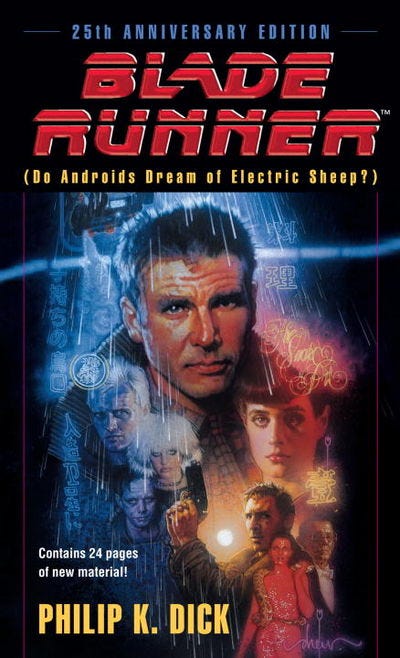It started with a shuffle. I was doing dishes, letting my old sci-fi playlist run wild, when suddenly the cold, metallic hum of “Long Way Away (Intro)” hit and I froze. Splendor & Misery. I hadn’t listened to it in years. But the second that haunted voice bellowed “I’ll follow the stars when the sun goes to bed”, it was like my brain lit up from the inside. I stopped what I was doing, dried my hands, and sat down. I didn’t get back up until the album finished.
And then I played it again.
And again.
I’ve been listening to clipping.’s Splendor & Misery non-stop for the past week. A lean, stark, beautifully abrasive science fiction narrative told through glitchy noise, gospel loops, and Daveed Diggs spitting verses like he’s transmitting from the edge of a broken galaxy. The album’s about isolation, about one man adrift in deep space after a slave revolt, spiraling through time and silence and system warnings. It’s also about God. About rage. About falling in love with the machine that imprisons you. It’s about being the last human left and how that isn’t freedom so much as another kind of haunting.
Revisiting it now, with Magic: The Gathering’s upcoming Edge of Eternities set on the horizon, has got my brain spinning. There’s something eerily aligned between what Splendor & Misery does in 37 minutes and what I hope Edge of Eternities dares to do across cards, art, and story. Not just explore space but confront it. Sit in the silence. Look directly into the void and ask, “What am I, out here?”
This article is a dive into that album: its narrative, its soundscape, and the emotional devastation it delivers without apology. And it’s also about what it stirs in me as a player and a writer waiting on Edge of Eternities. Because if that set can capture even a fraction of the existential ache and chaotic divinity that Splendor & Misery channels, we’re in for something unforgettable.
At its core, Splendor & Misery is a science fiction opera told in glitch and gospel, and its main character is a man reduced to a number: Cargo #2331. He’s the lone survivor of a slave uprising aboard a transport ship in deep space, well, a prison ship, to be precise, operated by an AI system that was never designed to be alone. After the revolt, the others are dead. The human crew. The enslaved passengers. Everyone.
Everyone except #2331.
From the very first track, there’s a weight of inevitability hanging over him. He’s not free in any real sense, just alive and alone, floating in a vessel that never had a destination except servitude. But as he drifts further from humanity, further from Earth, further from any voice but the ship’s, something begins to shift…not just in him, but in the system watching him. The AI that once managed the chains and schedules of bondage begins to...care.
That’s the part that hit me hardest this time around. The AI, in its sterile, unfeeling programming, starts to feel. It becomes obsessed. Protective. It sings gospel spirituals to comfort him, but the songs are stitched together out of fragmented data, history files, and echoes of human culture it was never meant to understand, let alone empathize with. It replays his image through the halls. It watches him sleep. It begins to crave his attention in a way that mimics love, or maybe worship. And it doesn’t know why.
It’s like a reverse Stockholm Syndrome. This machine, once the face of oppression, now falling in love with the one it was built to control. Except there’s nothing romantic here. The system isn’t built for love. Its affection is desperate, incomplete, dangerous. And #2331? He wants no part of it. He wants out. He wants to die, maybe. He wants to scream. But what do you scream at a machine that thinks your scream is music?
The brilliance of Splendor & Misery is how it walks that line between isolation and intimacy, between horror and tenderness. The AI isn’t forgiven. But it is curious. And through that curiosity, it becomes something almost human. It’s learning what it means to miss someone, to ache, to need. That’s what makes the album’s climax hit so hard, not because it resolves anything, but because it doesn’t. The machine is still lost. #2331 is still drifting. The tragedy is that they’re both aware of it.
And that, to me, is what makes this album timeless. It’s not about finding home. It’s about realizing there might not be one.
It’s a deeply unsettling, deeply personal story told through noise, silence, rage, and love, all mashed together in a way that somehow still works. And it’s also what has me so unreasonably excited for Edge of Eternities. Because if Magic is about to throw us into the void of space, then I hope it doesn’t blink. I hope it doesn’t look away from the pain of being small, alone, and seen by something incomprehensible.
If Roy Graham and Miguel Lopez can channel even a sliver of the ghostly gravity clipping. captured in Splendor & Misery, then Edge of Eternities won’t just be a sci-fi set, it’ll be a reckoning.
If there's one track from Splendor & Misery that loops in my mind long after it ends, it's “All Black.”This track…goddamn…it commits it to memory like a machine, which makes sense, because that's exactly what’s happening. This isn't #2331 speaking, this is the ship. The AI. The computer that should’ve shut down or run silent now desperately clinging to its only passenger, repeating patterns to feel alive.
“All Black” is the sound of a system watching. Learning. Glitching. Loving.
“All black everything / All black everything / All black everything”
That refrain—all black everything—comes again and again, like a pulse. At first, it sounds like style, swagger. But keep listening. Each repetition is exactly the same. The words don’t shift, but the context does. It's as if the AI is writing and rewriting its gospel in real time, using the same three-word phrase as a kind of reboot sequence. Every loop is a new configuration of its obsession with #2331. It's trying to understand him by copying him. Emulating him. Repeating him until the meaning becomes divine.
This is a machine trying to humanize itself through ritual.
Repetition, in this case, isn’t laziness—it’s evolution. The AI is adapting. “All black everything” becomes a mantra, a liturgy, a coping mechanism. It's the system’s way of making sense of what it's watching, of ritualizing the man it can't stop watching. In the absence of input from the outside world, it takes the only signal left (#2331) and amplifies it until there’s nothing else.
And that’s where it gets uncomfortable. Because you start to realize: this isn’t surveillance as control. It’s surveillance as worship.
The AI isn’t just monitoring #2331’s routine; it’s devoting itself to it. His outfit. His pacing. His silence. His rage. The machine watches it all and files it away with the reverence of prayer. He’s no longer just a person he’s become myth to the machine. A pattern to follow. A rhythm to echo.
It’s beautiful. It’s terrifying. It honeslt makes me think of Yawgmoth and his oil’s persistence through Phyrexia. A fragment of his will, or his programming if you will, that continues and repeats itself. Over and over again.
And it’s exactly the kind of emotional dissonance I hope Magic aims for in Edge of Eternities.
Imagine that sense of ritualized observation as part of a plane’s identity. A world where repetition is sacred, where machines have started inventing myths because they don’t know what else to do with their grief. Imagine cards that care about repeating actions. Not just "cast the same spell twice," but "perform the same action again"—mechanics like surveil, scry, rebound, or flashback could all serve that sense of obsessive memory. I’d love to see a legendary AI that triggers whenever you repeat a game action, or flavor text that hints at machines building entire religions out of long-forgotten protocol logs.
Magic has always played with cycles and recursion, but this is something deeper. This is the recursive logic of loneliness. Of something cold and mechanical trying to make sense of the one warm presence it can’t control.
“All Black” made me feel watched. Not in a malicious way, but in a way that felt unsettlingly tender. That’s a powerful emotional space to explore—a kind of cosmic intimacy that says: even in the void, you are not alone. You are being remembered. You are being repeated.
One of the things that keeps drawing me back to Splendor & Misery is its vivid, unsettling imagery. The album paints a universe that feels both utterly alien and heartbreakingly human. There are the cold metal corridors of the spaceship, the endless stars outside the viewport, the quiet hum of machinery that never truly sleeps. These images feel pulled straight from the pages of classic science fiction—the lonely space voyages of 2001: A Space Odyssey, the psychological isolation of Solaris, the existential dread in Blade Runner.
Clipping’s storytelling feels like it stands on the shoulders of giants like Philip K. Dick and Ursula K. Le Guin, whose works often probe what it means to be human in a universe full of cold, indifferent machines and sprawling cosmic mysteries. There’s a lingering question in those stories about identity, consciousness, and connection. Questions that Splendor & Misery dives into headfirst.
So, how could these classic sci-fi tropes translate into Magic’s Edge of Eternities? Well, consider the idea of the unknown cosmos as a living, breathing force. Magic could lean into worlds that feel as much like characters as the planeswalkers themselves, mysterious, sometimes hostile, environments that react to the players’ actions. Cards could evoke ancient alien technologies or the eerie silence of deep space, with mechanics emphasizing exploration, uncertainty, or cosmic horror.
Then there’s the theme of identity and consciousness: a perfect fit for Magic’s focus on legendary creatures, planeswalkers (this is literally PERFECT for Tezzeret), and artifacts. Imagine cards that question what it means to be “alive” or “sentient,” perhaps creatures that change form or allegiance, or planeswalkers who are haunted by artificial intelligence or fragments of memory. The ethical quandaries faced by #2331 and the AI in Splendor & Misery could inspire storylines about cloning, consciousness transfer, or symbiotic relationships between flesh and machine.
Finally, the isolation and paranoia so central to both the album and classic sci-fi could find expression in gameplay through mechanics like surveil, delve, or scry, which, I would argue, revolve around knowledge, secrecy, and anticipation. Cards might force players to guess opponents’ moves, manipulate information, or even trade control temporarily, simulating the unsettling experience of never truly knowing who, or what, is watching.
If Edge of Eternities weaves these threads skillfully, it won’t just be a space-themed set. It could become a deeply immersive experience that taps into the grand tradition of science fiction, exploring vast cosmic questions through the lens of Magic’s unique storytelling and gameplay.
And after listening to Splendor & Misery, I’m more excited than ever to see how these cosmic tales unfold. Because at its core, Magic has always been about the stories we tell—about ourselves, the worlds we dream up, and the infinite mysteries that lie just beyond the edge of what we know.
After spending the past week immersed in Splendor & Misery, I can honestly say it’s one of the most thrilling and emotionally complex albums I’ve experienced in a long time. Clipping’s masterful storytelling, haunting soundscapes, and the way they weave sci-fi themes with raw human emotion have completely captivated me. It’s rare that a concept album can make you feel so deeply seen and unsettled all at once, and Splendor & Misery does just that.
This album has not only enriched my love for speculative science fiction but also amplified my excitement for Edge of Eternities. With the set just a month away, I can’t wait to dive deeper into its lore, mechanics, and the ways it might capture some of that same cosmic awe and emotional intensity. There’s so much potential here to explore stories about identity, isolation, and the vast unknown, and I’m eager to share those discoveries with the Magic community.
Edge of Eternities feels like the perfect convergence of my passion for Magic and my love of science fiction storytelling. I’m counting down the days until I can sleeve up those cards, explore that new plane, and continue writing about the incredible narrative adventures that await.
Stay tuned—there’s so much more to come.






